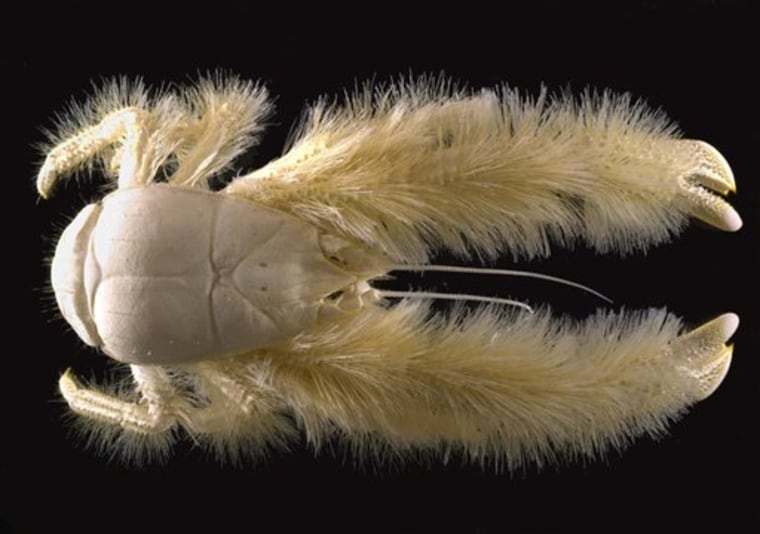In a whale-sized project, the world's scientists plan to compile everything they know about all of Earth's 1.8 million known species and put it all on one Web site, open to everyone.
The effort, called the Encyclopedia of Life, will include species descriptions, pictures, maps, videos, sound, sightings by amateurs, and links to entire genomes and scientific journal papers. Its first pages of information will be shown Wednesday in Washington where the massive effort is being announced by some of the world's leading institutions. The project will take about 10 years to finish.
"It's an interactive zoo," said James Edwards, who will be the encyclopedia's executive director. Edwards currently helps run a global biodiversity information system.
If the new encyclopedia progresses as planned, it should fill about 300 million pages, which, if lined up end-to-end, would be more than 52,000 miles long, able to stretch twice around the world at the equator.
Two foundations have given $12.5 million to pay for the first 2 1/2 years of the massive effort, but it will be free and accessible to everyone.
The pages can be adjusted so that they provide useful information for both a schoolchild and a research biologist alike, with an emphasis on encouraging "citizen-scientists" to add their sightings. While amateurs can contribute in clearly marked side pages, the key detail and science parts of the encyclopedia will be compiled and reviewed by experts.
"It could be a very big leap in the way we do science," said Cristian Samper, acting secretary of the Smithsonian Institution, one of seven museums, universities and labs to launch the encyclopedia. "This is a project that is so big, not even the Smithsonian, could do it by itself. It is a global effort."
For more than a decade, scientists have tried to compile even just a list of all species on Earth, but failed. It's been too complicated, too expensive and too cumbersome.
This effort may succeed where the others have faltered because of new search engine technology, the scientists said.
